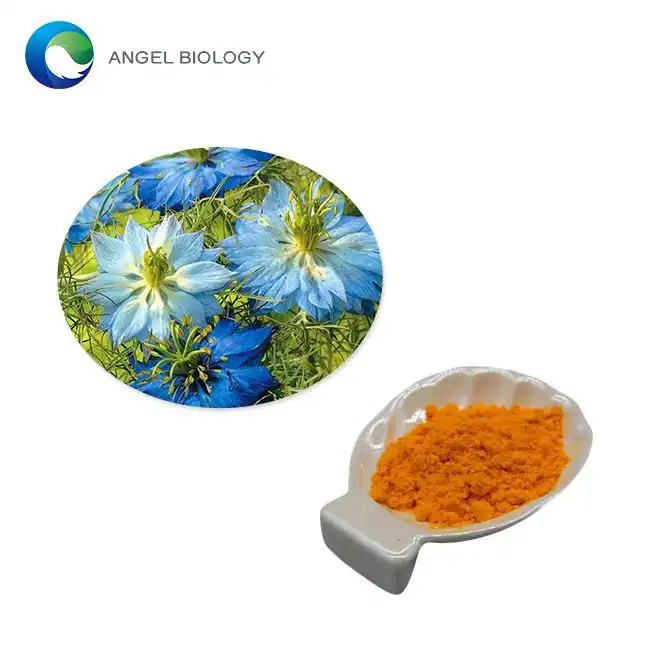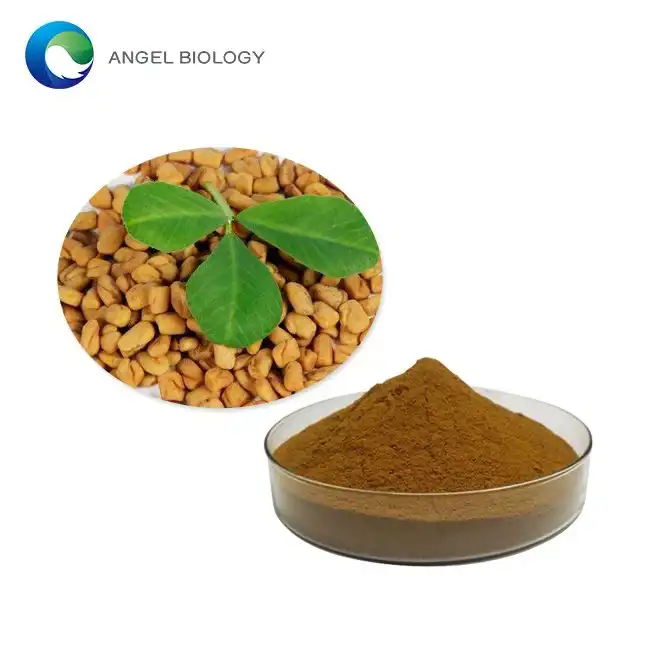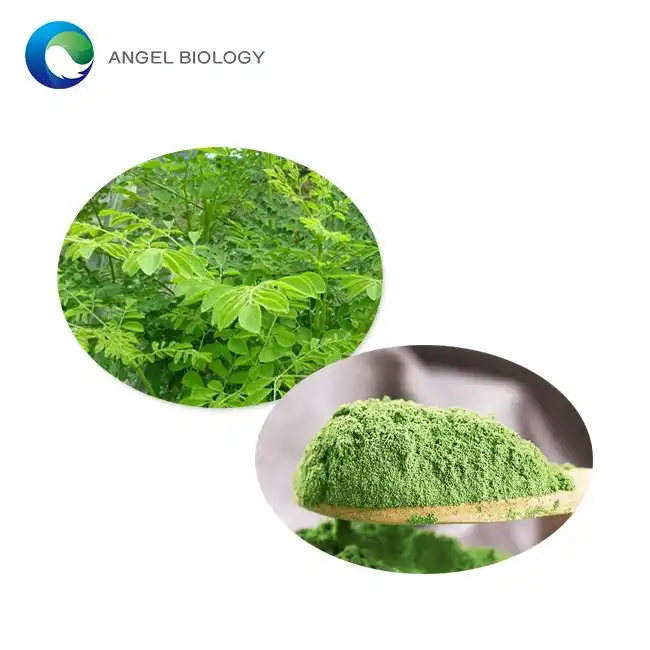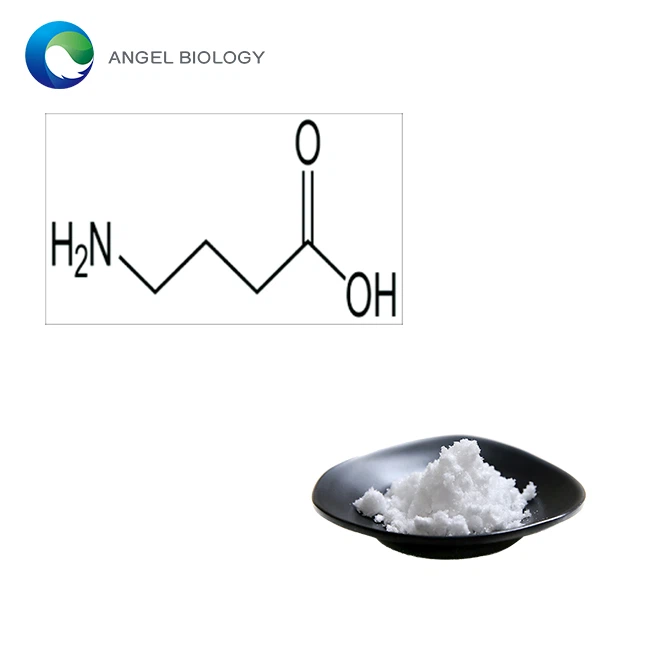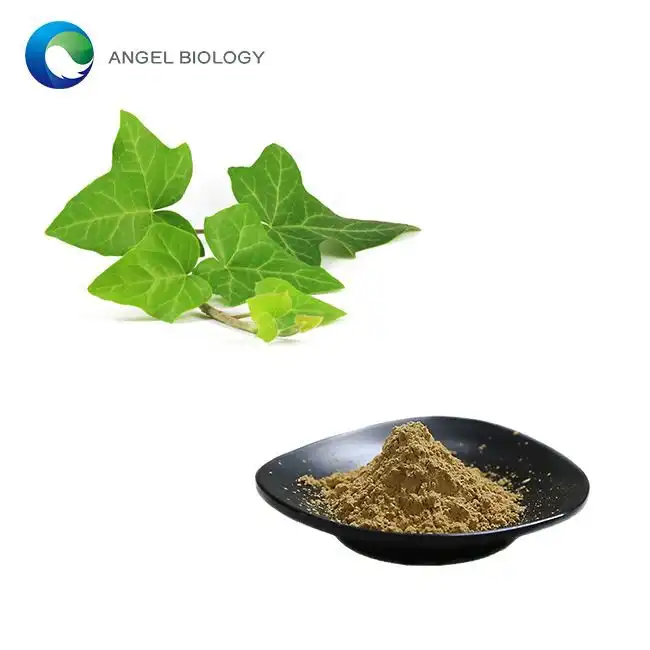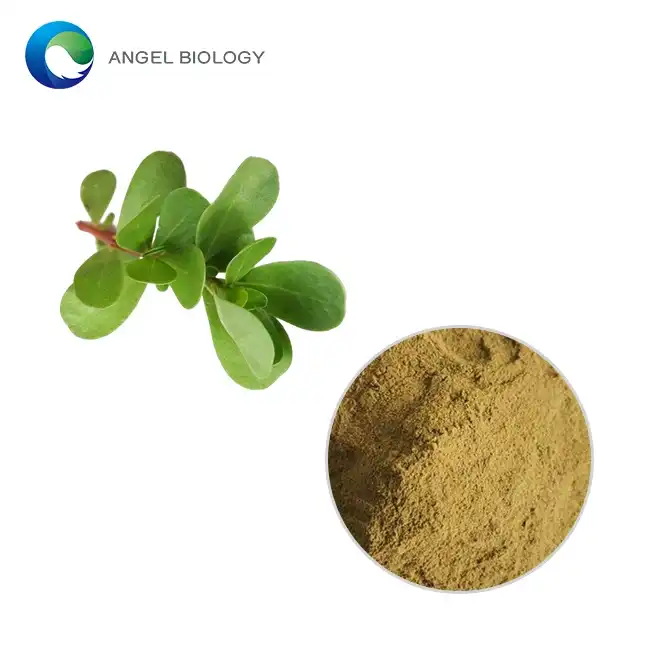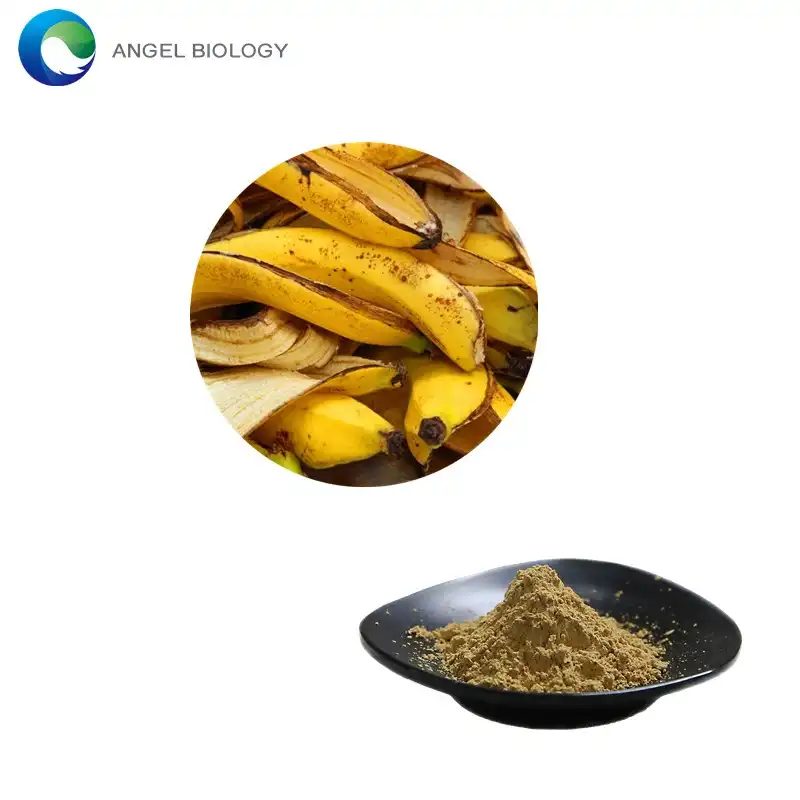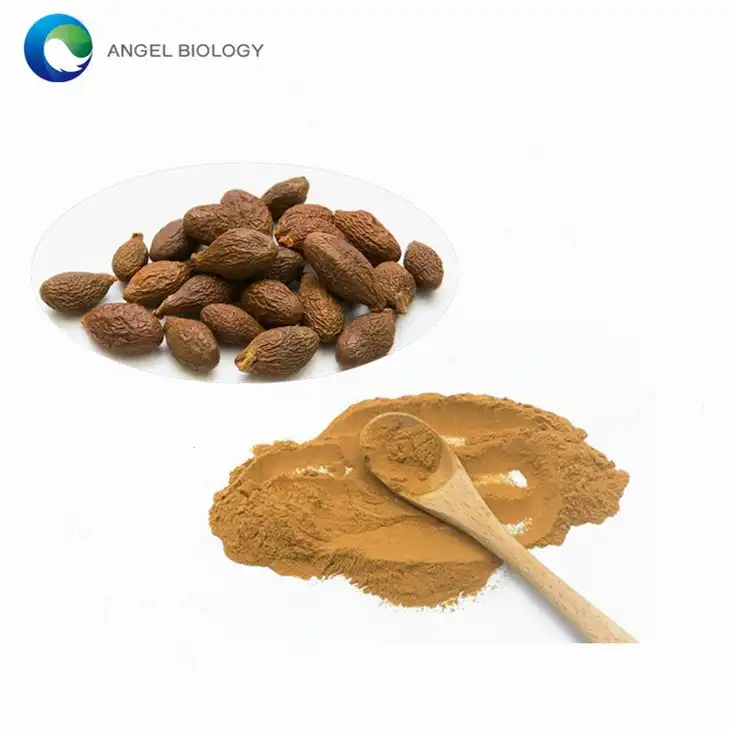Vitamin K2 MK-7 Powder vs. Synthetic K2: Which is Better?
When it comes to choosing between Vitamin K2 Mk-7 Powder and synthetic K2, the natural form emerges as the superior option. Vitamin K2 MK-7 Powder, derived from natto fermentation, offers enhanced bioavailability and a longer half-life in the body compared to its synthetic counterpart. This natural form provides more consistent and effective support for bone health and cardiovascular function. While synthetic K2 may be more cost-effective, the benefits of MK-7 powder in terms of absorption, stability, and overall efficacy make it the preferred choice for those seeking optimal health outcomes.
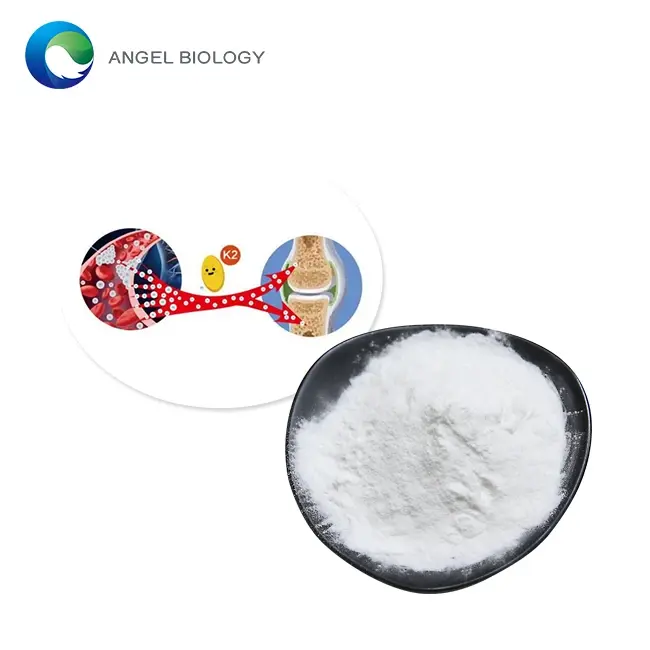
Vitamin K2 Mk-7 Powder
CAS No.: 11032-49-8
EINECS No.: 234-264-5
Chemical Formula: C31H40O2
Molecular weight: 444.65
Solubility: Insoluble in water, easily soluble in organic solvents and vegetable oil Appearance: yellow crystal or oily liquid, insoluble in water
Certifications: ISO9001, Kosher,Halal, FDA, IFEAT
Packing Size: 25kg/drum
Delivery Terms: EXW, FOB, CIP, CIF, DAP
Transportation: Courier, Air, Ocean
Payment Terms: T/T preferred
Delivery: Ready stock, Prompt and Secure Shipment
Free Sample: Available
OEM/ODM: Available
MOQ: 1kg
Discount for large orders
Not for Private Person Sale
Natural vs. Synthetic K2: Understanding the Differences
Chemical Structure: MK-7 Powder vs. Synthetic K2
The chemical structure of Vitamin K2 MK-7 powder closely resembles the form found in nature, specifically in fermented foods like natto. This natural structure consists of a long side chain with seven isoprene units, giving it the name menaquinone-7 (MK-7). The molecular configuration of MK-7 allows for optimal interaction with cellular receptors, enhancing its biological activity.
Synthetic K2, on the other hand, often lacks the precise structural nuances of its natural counterpart. While manufacturers strive to replicate the MK-7 structure, subtle differences can occur during the synthesis process. These variations may impact the molecule's spatial arrangement, potentially affecting its functionality within the body.
Source and Production: Natural MK-7 vs. Synthetic K2
Natural Vitamin K2 Mk-7 Powder is typically produced through fermentation of soybeans by Bacillus subtilis natto. This process mimics the traditional preparation of natto, a Japanese fermented soybean dish rich in MK-7. The resulting powder contains a complex of naturally occurring cofactors and enzymes that may enhance its biological activity.
Synthetic K2 production involves chemical synthesis in laboratory settings. While this method allows for large-scale production and potentially lower costs, it lacks the additional beneficial compounds found in natural sources. The absence of these cofactors may impact the overall effectiveness of synthetic K2 in supporting various physiological processes.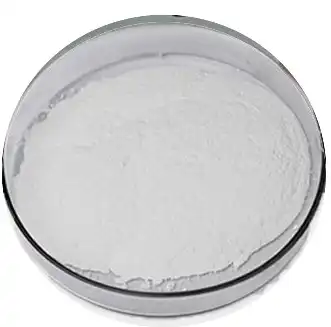
Stability and Shelf Life: Comparing K2 Forms
MK-7 powder demonstrates superior stability compared to synthetic K2 forms. Its natural structure provides resistance to degradation from heat, light, and oxidation. This enhanced stability translates to a longer shelf life, maintaining potency over extended periods. Manufacturers often report minimal loss of activity in properly stored MK-7 powder over several years.
Synthetic K2 formulations may require additional stabilizers or protective coatings to achieve comparable shelf life. These additives can potentially affect the bioavailability and purity of the final product. The inherent stability of MK-7 powder offers advantages in product formulation and storage, ensuring consistent potency throughout its lifespan.
Bioavailability and Absorption: MK-7 Powder vs. Synthetic K2
Absorption Rates: Natural MK-7 vs. Synthetic K2
Natural Vitamin K2 MK-7 powder demonstrates superior absorption rates compared to synthetic K2 forms. The molecular structure of MK-7 allows for efficient uptake in the intestinal tract, leading to higher blood concentrations. Studies have shown that MK-7 from natto extract is absorbed more effectively than synthetic K2, resulting in greater bioavailability.
The enhanced absorption of MK-7 powder is attributed to its lipophilic nature and the presence of natural cofactors. These characteristics facilitate its incorporation into chylomicrons, lipid-rich particles that transport fat-soluble vitamins throughout the body. Synthetic K2 may lack these natural enhancers, potentially limiting its absorption efficiency.
Half-life in the Body: MK-7 Powder Advantage
One of the most significant advantages of Vitamin K2 Mk-7 Powder is its extended half-life in the body. Research indicates that MK-7 remains active in the bloodstream for up to 72 hours after ingestion. This prolonged presence allows for more consistent vitamin K2 levels, supporting ongoing biological processes related to bone and cardiovascular health.
Synthetic K2 forms typically have shorter half-lives, necessitating more frequent dosing to maintain therapeutic levels. The sustained activity of MK-7 powder offers practical benefits, allowing for less frequent supplementation while providing continuous support for vitamin K-dependent functions.
Clinical Studies on K2 Bioavailability
Numerous clinical studies have compared the bioavailability of natural MK-7 powder to synthetic K2 analogues. A landmark study published in the Journal of Nutritional Science and Vitaminology demonstrated that MK-7 from natto had a bioavailability several times higher than synthetic K2. Participants showed significantly elevated serum MK-7 levels after consuming natural K2, with effects persisting for several days.
Another study in the European Journal of Nutrition examined the long-term effects of MK-7 supplementation on vitamin K status. The results revealed that natural MK-7 powder effectively increased circulating levels of vitamin K2, with improvements in bone and cardiovascular markers observed over a three-year period. These findings underscore the superior bioavailability and long-term efficacy of MK-7 powder compared to synthetic alternatives.
Health Benefits and Safety: Comparing K2 MK-7 to Synthetic Alternatives
Bone Health: MK-7 vs. Synthetic K2 Efficacy
Natural Vitamin K2 Mk-7 Powder has demonstrated superior efficacy in supporting bone health compared to synthetic K2 forms. MK-7's longer half-life and improved bioavailability contribute to its enhanced bone-protective effects. Research published in Osteoporosis International showed that MK-7 supplementation significantly increased bone mineral density and reduced fracture risk in postmenopausal women.
The mechanism behind MK-7's bone benefits involves its role in activating osteocalcin, a protein essential for proper calcium utilization in bone formation. The sustained presence of MK-7 in the body ensures continuous activation of osteocalcin, promoting optimal bone mineralization. Synthetic K2, with its shorter half-life, may not provide the same consistent support for bone metabolism.
Cardiovascular Benefits: Natural vs. Synthetic K2
MK-7 powder offers significant advantages in cardiovascular health support compared to synthetic K2 alternatives. A study published in Thrombosis and Haemostasis revealed that long-term MK-7 supplementation improved arterial stiffness in healthy postmenopausal women. This effect was attributed to MK-7's ability to activate matrix Gla protein (MGP), which inhibits calcium deposition in blood vessels.
The extended bioavailability of MK-7 ensures consistent activation of MGP, providing ongoing protection against arterial calcification. Synthetic K2 forms, with their shorter duration of action, may not offer the same level of continuous cardiovascular support. The natural cofactors present in MK-7 powder may also contribute to its superior cardiovascular benefits.
Safety Profile: MK-7 Powder and Synthetic K2 Compared
Both natural MK-7 powder and synthetic K2 forms have demonstrated favorable safety profiles in clinical studies. However, the natural origin of MK-7 may offer additional reassurance for consumers seeking minimally processed supplements. The long history of natto consumption in traditional diets provides further evidence for the safety of MK-7 derived from fermented soybeans.
natural origin of MK-7 may offer additional reassurance for consumers seeking minimally processed supplements. The long history of natto consumption in traditional diets provides further evidence for the safety of MK-7 derived from fermented soybeans.
Synthetic K2 production may involve the use of chemical solvents or additives, which could potentially introduce trace impurities. While stringent quality control measures are typically in place, some consumers prefer the inherent purity of naturally sourced MK-7 powder. It's important to note that individuals taking certain medications, such as blood thinners, should consult healthcare providers before using any form of vitamin K2 supplement.
Conclusion
In the comparison between Vitamin K2 MK-7 powder and synthetic K2, natural MK-7 emerges as the superior choice for those seeking optimal health benefits. Its enhanced bioavailability, extended half-life, and comprehensive support for bone and cardiovascular health make it a preferred option for supplement formulations. While synthetic K2 may offer cost advantages, the overall efficacy and natural synergistic compounds found in MK-7 powder provide a compelling case for its use in nutritional supplements and functional foods.
For high-quality Vitamin K2 MK-7 powder, consider Xi'an Angel Biotechnology Co., Ltd. As a leading supplier in the nutraceutical industry, we offer premium-grade MK-7 powder derived from natto fermentation. Our products meet stringent quality standards and are backed by comprehensive certificates of analysis. For inquiries about our Vitamin K2 Mk-7 Powder or to request a quote, please contact us at angel@angelbiology.com. Our team of experts is ready to assist you in finding the right product for your formulation needs.
References
1. Schurgers, L. J., et al. (2007). Vitamin K-containing dietary supplements: comparison of synthetic vitamin K1 and natto-derived menaquinone-7. Blood, 109(8), 3279-3283.
2. Knapen, M. H., et al. (2013). Three-year low-dose menaquinone-7 supplementation helps decrease bone loss in healthy postmenopausal women. Osteoporosis International, 24(9), 2499-2507.
3. Geleijnse, J. M., et al. (2004). Dietary intake of menaquinone is associated with a reduced risk of coronary heart disease: the Rotterdam Study. The Journal of Nutrition, 134(11), 3100-3105.
4. Beulens, J. W., et al. (2009). High dietary menaquinone intake is associated with reduced coronary calcification. Atherosclerosis, 203(2), 489-493.
5. Sato, T., et al. (2012). Comparison of menaquinone-4 and menaquinone-7 bioavailability in healthy women. Nutrition Journal, 11(1), 93.
6. Knapen, M. H., et al. (2015). Menaquinone-7 supplementation improves arterial stiffness in healthy postmenopausal women: double-blind randomised clinical trial. Thrombosis and Haemostasis, 113(5), 1135-1144.



